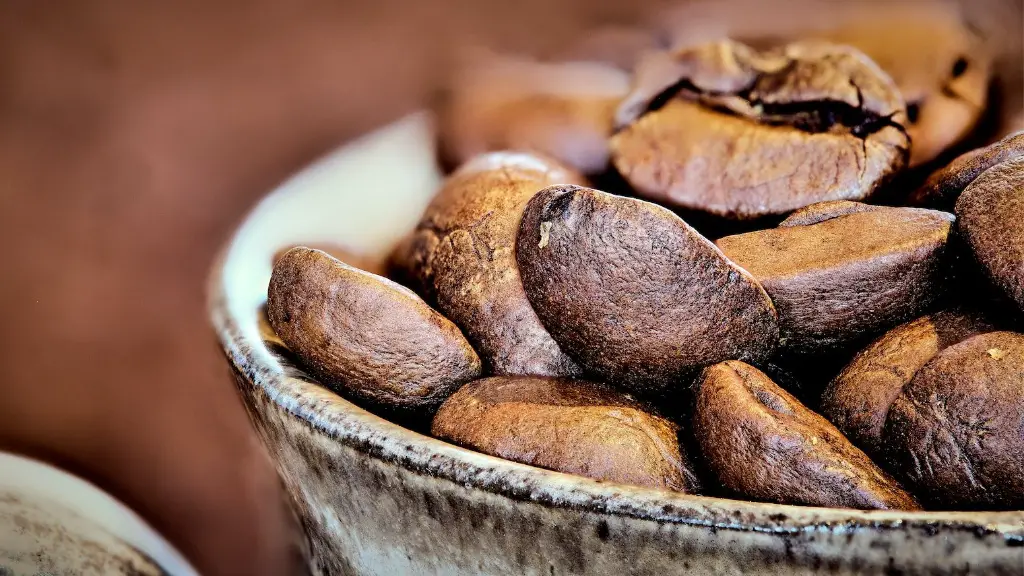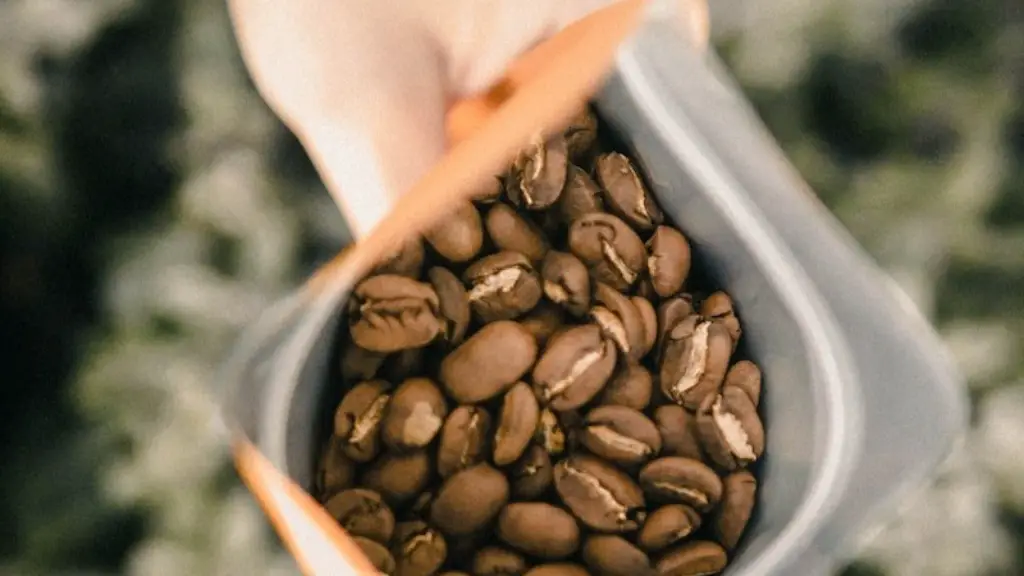Benefits of Drinking Coffee
Coffee has been an integral part of most cultures for centuries. It is one of the most popular beverages in the world, and having a cup of coffee each morning can be a great way to start your day. Coffee is touted for its various health benefits, including reducing inflammation, boosting focus, and improving physical health. Studies have also found that drinking coffee can reduce the risk of certain types of cancer and other diseases.
In addition to its health benefits, drinking a cup of coffee can also provide a mental boost. The caffeine in coffee can help increase alertness and concentration. It can also boost your energy levels, making it easier to stay motivated. Coffee can also help improve your mood and make you feel more relaxed. If you’re feeling tired or sluggish, a cup of coffee can be just the thing to get you going.
How Much Coffee Should You Drink?
When it comes to how much coffee you should drink each day, the answer can vary from person to person. While there are no strict guidelines, it’s generally recommended that adults consume no more than 400mg of caffeine per day, or two to four cups of coffee. However, it’s important to note that everyone’s body is different and caffeine affects people differently.
If you are sensitive to caffeine or have certain medical conditions, it’s probably best to stick to one or two cups of coffee a day. It’s also important to understand that drinking more than four cups of coffee per day can have some negative side effects, such as headaches, insomnia, jitters, and increased anxiety. If you experience any of these symptoms, it’s best to cut back on the amount of coffee you drink or switch to a decaffeinated option.
It’s also important to note that the amount of caffeine per cup can vary depending on the type of coffee. For instance, espresso shots have much higher levels of caffeine than regular brewed coffee. It’s important to take this into account when deciding how much coffee to drink each day.
Alternatives to Coffee
If you’re looking for an alternative to coffee, there are a variety of options to choose from. Green and herbal teas are a great source of antioxidants and can provide the same mental boost as coffee without all the caffeine. Chai tea is another great option, as it is known to be high in antioxidants and can help boost mood and alertness. There are also caffeine-free coffee alternatives, such as chicory coffee, that can provide the same flavor as regular coffee without any of the caffeine. In addition to tea or coffee alternatives, other beverages such as matcha and yerba mate are becoming increasingly popular.
For those looking for a natural, caffeine-free alternative to coffee, there are also a number of nut- and seed-based beverages available. Some of the more popular ones include coconut, macadamia and almond milk-based drinks that can provide a creamy, rich flavor. These drinks are a great way to get a boost of vitamins and minerals, as well as all-natural sweetness, without having to resort to added sugar or artificial flavors.
Tips for a Healthier Coffee Habit
If you want to develop a healthier coffee drinking habit, there are some tips you can follow. First and foremost, it’s important to stay within the recommended limits and not go overboard with how much coffee you are drinking. Second, be aware of how different types of coffee can affect your body differently. For instance, regular brewed coffee is naturally lower in caffeine than espresso shots, so make sure you are factoring that in when deciding how much caffeine to consume.
Also, make sure you are mindful of any potential triggers. Some people may be more sensitive to caffeine and may need to limit or avoid it altogether. Others may find that consuming coffee late at night can make it harder to get a good night’s rest, so it’s important to be mindful of this when consumed.
Finally, it’s important to pay attention to what you are putting in your coffee. Added sugar and cream can quickly turn your healthy cup of coffee into an unhealthy one. It’s best to opt for healthier alternatives such as almond milk or plant-based creamer, and opt for natural sweeteners such as honey or maple syrup instead of refined sugar.
The Benefits of Quitting Coffee
Despite the health benefits, there are some people who may want to consider quitting coffee altogether. Quitting can be especially beneficial to those who are prone to feeling anxious, as the caffeine in coffee can worsen these symptoms. By quitting, you can eliminate that source of caffeine and hopefully find relief.
In addition, if you are one to consume more than two cups of coffee per day, quitting may help improve overall health in the long run. This is because excessive caffeine intake can disrupt sleep and cause dehydration. Quitting can also help reduce or prevent some of the more unpleasant side effects of drinking too much coffee, such as headaches and jitters.
Finally, quitting coffee can help break unhealthy habits, such as relying on coffee to get through the day. By kicking the habit, you may find that you have more energy during the day and your overall mood is improved. As with any habit, quitting coffee can be difficult at first, but once you establish a routine and see the benefits, you may find you don’t even miss it.
How to Quit Coffee in a Healthy Way
If you’re looking to quit coffee in a healthy way, the first step is to reduce your intake slowly. Don’t try to quit cold turkey, as this can lead to withdrawal symptoms such as headaches and fatigue. Instead, try to cut back on the amount of coffee you drink each day until you can quit altogether. For some, this process may take weeks or even months.
Another helpful tip is to find replacement beverages. Choose something that still gives you a burst of energy, such as green tea or yerba mate. You can also consider alternatives to coffee that still provide the flavor and warmth of coffee without all the caffeine, such as chicory coffee. This can help make the transition easier.
If you’re experiencing headaches or other withdrawal symptoms while quitting, it can also be helpful to drink plenty of water. This can help flush out your system, reduce headaches, and make the transition easier. Additionally, exercising and using relaxation techniques may help reduce any anxiety and restlessness associated with quitting coffee.
Addressing Caffeine Addiction
Caffeine addiction is a real problem for some people and should be addressed. If you are having difficulty cutting back or quitting coffee, you may need to seek professional help. A health care provider can help you find ways to break the habit and give you tips for quitting. Additionally, if you have an underlying mental health issue that is causing you to overconsume caffeine, it’s important to seek professional help to address the root issue.
When it comes to quitting caffeine, there’s no one-size-fits-all approach. It’s important to explore different methods and find one that is right for you. Ultimately, no matter how much coffee you decide to drink each day, it’s important to be mindful of your body and its individual needs.
Conclusion
Coffee is one of the most popular beverages in the world, and it’s easy to see why. It can provide a mental boost and has a number of health benefits. While there is no one-size-fits-all approach when it comes to how much coffee people should consume, it’s generally recommended that adults should consume no more than 400mg of caffeine each day. If you are looking to cut back on your coffee consumption, there are options such as green tea and chicory coffee that can provide the same flavor and warmth of regular coffee without the caffeine.
For those struggling with caffeine addiction, seeking help may be necessary. This can help you break the habit and find better ways to manage the root cause. Ultimately, no matter how much coffee you drink, it’s important to be mindful of what your body needs and make sure you’re drinking responsibly.





